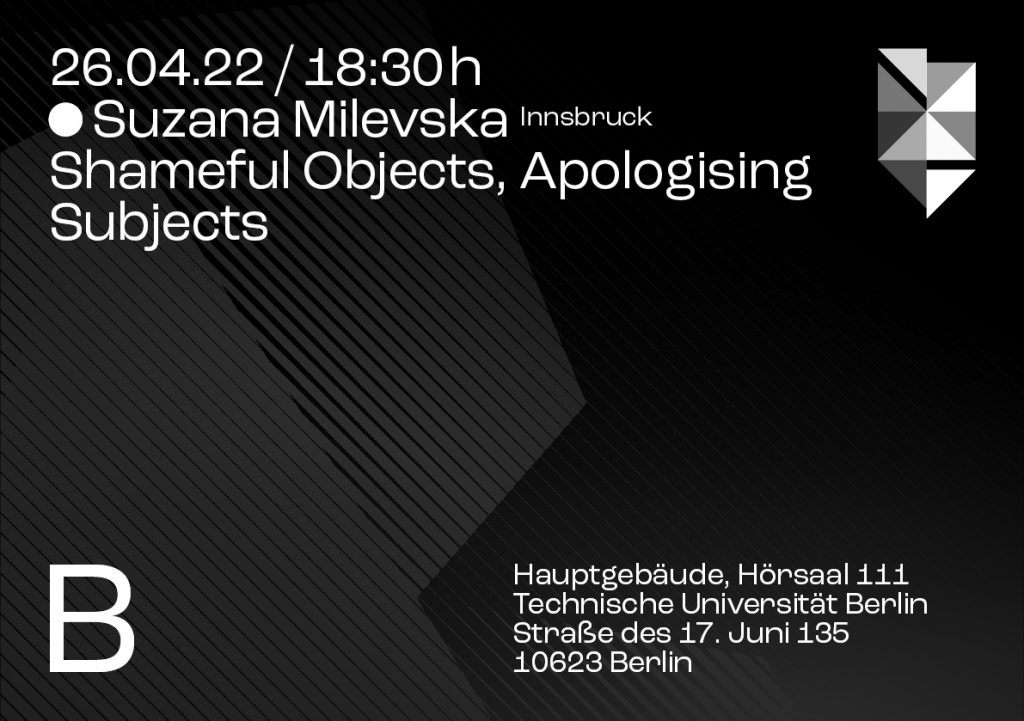Suzana Milevska (Insbruck): Shameful Objects, Apologising Subjects
It is urgent to discuss and challenge the systemic and structural conditions that motivated and enabled the museums and other institutions to collect and store objects charged with difficult historic and cultural background, both in terms of decolonising macrohistoric and microhistoric narratives.
Subsequently it’s even more urgent to develop appropriate strategies that could address the contentiousness of such objects (or whole collections) with carefully drafted aims and projections of expected outcomes. Particularly important is the attempt to anticipate the effect that these strategies could have on the implicated communities from which these objects originated, or the institutions which collect and display them. It is clear that one cannot ignore or circumvent the shameful objects in museum collections when dealing with these issues, but the question remains how to deal with them in a constructive way.
The concept of “productive shame”, initially proposed by Paul Gilroy for the complex processes of coming to terms with a grim colonial and imperial past, is particularly relevant for addressing the questions such are: How can one deal with the personal and collective memories of “paralyzing guilt” after dreadful atrocities and genocides? How can such negative experiences be transformed into “productive shame” (not only for the perpetrators, but also for the victims and witnesses of traumatic events)? These questions are to prompt a crossdisciplinary inquiry into various examples of productive shame, apology, renaming, repatriation and restitution of unlawfully obtained objects, and other ways of distancing from the difficult past. In this light it is also necessary to discuss and contest the ontological understanding of shame and its psychoanalytical interpretation based solely on personal traumatic experiences linked to lack, loss, memory repression, and absence.
Suzana Milevska is a curator and theorist of art and visual culture from North Macedonia. Currently she is a Künstlerhaus Büchsenhausen Research Fellow in Innsbruck. Her theoretical research projects employ postcolonial and feminist institutional critique of representational regimes of hegemonic power in arts and visual culture, and the deconstruction and decolonization of contentious cultural heritages in art institutions, collections, and public spaces. Her curatorial projects focus on collaborative and participatory art practices, feminist projects by women artists looking at visual microhistories in historic and family photographic archives, and community-based projects in solidarity with marginalized and disenfranchised communities. In 2019, Milevska curated the exhibition Contentious Objects/Ashamed Subjects at the Polytechnic University Milan as Principal Investigator of TRACES – Transmitting of Contentious Cultural Heritages with the Arts – From Intervention to Co-production (EU Programme Horizon 2020, 2016-2019). From 2013 to 2015, she was Endowed Professor of Central and South Eastern European Art Histories, Academy of Fine Arts Vienna. Milevska was a Fulbright Senior Research Scholar (Library of Congress, Washington D.C.). She holds a PhD in Visual Cultures from Goldsmiths College London. In 2012, she won the ALICE Award for Political Curating, and the Igor Zabel Award for Culture and Theory. In 2010, Milevska initiated the project Call the Witness that focused on contemporary Roma artists and consisted of a participatory online Roma Media Archive, the exhibition Call the Witness, (BAK Utrecht), and the Roma Pavilion at 54 Venice Biennial (Palazzo Zorzi, Venice). In 2011, she also curated the project Roma Protocol, Wiener Festwochen, Austrian Parliament, Vienna.
The presentation will not take place at the Technical University of Berlin as previously planned but in digital format and can be followed at the following link (Zoom-Meeting):
https://tu-berlin.zoom.us/j/69181277058?pwd=aVhXR0QzSGhnRTZTYlRNS3pVYXVvQT09
Meeting-ID: 691 8127 7058 / Identification code: 723331
